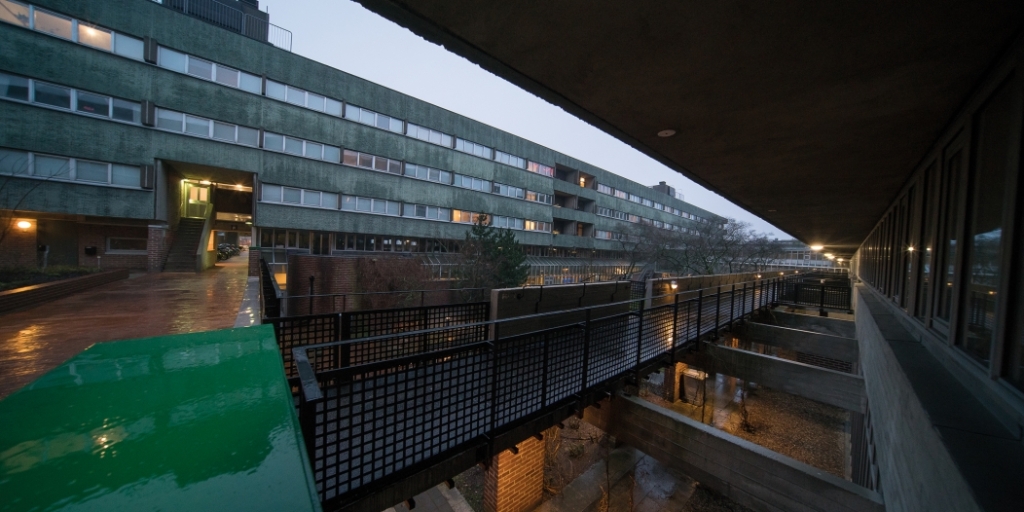In December 2020, tenants residing at AF Bostäder’s housing were sent an email informing them that their rents were to increase. The new rents were not successfully negotiated with the Tenants Union, resulting in protests from students who are now being called to the Rental Board.
In 2020, AF Bostäder (AFB), the largest student housing company in Lund, decided to raise their tenants’ rent by 2 percent for 2021, causing protest from students. Many chose to organize themselves in a Facebook group.
As the raise was deemed too large by the Swedish Tenants’ Union (Hyresgästföreningen), both parties participated in negotiations, as is customary in Sweden. AFB, however, suspended the negotiations in December 2020 and will now put tenants who refused to pay the new rent before the Rental Board. The Rental Board is a type of court before which people bring rent and housing issues, but also serves as an arbitration tribunal in tenancy disputes.
If we as tenants were to accept rent increases, we are signaling that negotiations are superfluous.
Those who chose to accept the raise, simply just paid the new rent, but tenants who rejected the raise were offered to pay the old rent while partaking in continued negotiations with AFB. The founder of the Facebook group “Tenants who are still negotiating with AF Bostäder”, Arne Stenkrona, and Olivia Bexell, another Lund University student who is active in the group, were both against the rent increase because it was not negotiated with the tenants. Over 400 other students have joined Arne Stenkrona’s Facebook group.
After rejecting the raise, individual discussions did not take place according to Olivia Bexell. When AFB sent out their notification of the new rent, they stated that they had left negotiations with the Tenants’ Union, which makes the new rent illegitimate, claims Olivia Bexell.
“If we as tenants were to accept rent increases that have not gone through proper negotiations, we are signaling that negotiations are superfluous, giving AFB precedent to increase rents arbitrarily based on their preferences,” says Arne Stenkrona.

Arne Stenkrona is disappointed that AFB left negotiations last year. He points out the housing company’s lack of communication with the tenants, as tenants got the information of the raise the same day as they pay their monthly rent. Arne Stenkrona says “they stranded the negotiations just before the winter holidays and communicated this in a way that I can only interpret as them hoping that most would not have the energy to oppose.”
Most students lost their part-time jobs, meaning students only had CSN to rely on, which did not increase during the pandemic
AFB has now initiated a case with the Rental Board, where they wish to receive retroactive rents for the full year of 2021 from tenants who have been paying the old rent instead of the newly increased one. Consequently, students have started to be summoned before the Rental Board. Students who are members of the Tenants’ Union will have the opportunity to be represented by a legal counsel.
Olivia Bexell and Arne Stenkrona both feel that AFB’s recent actions contradict the company’s claim to be “the students’ own housing company”. Olivia Bexell believes that “AFB is taking advantage of students who are new to the housing market,” as students know little about their rights and are scared to not fully pay invoices they receive. They, in fact, have the right to not pay the rent if it is unnegotiated, as in this case. Olivia Bexell continues to explain that she questions AFB’s motivation to increase the rent, since it was unnegotiated and took place during the pandemic. “Most students lost their part-time jobs, meaning students only had CSN to rely on, which did not increase during the pandemic,” says Olivia Bexell.
AFB states on their website that they “own, take care of, and develop good and cheap housing for active students in Lund”. Henrik Krantz, CEO of AFB, claims that “students should bear in mind that everything AFB does, including rents, goes back to the students. We build more housing, we renovate, we take care of the outside [and] offer bike care shops”. Henrik Krantz explains that the increased rent is part of the process in allowing AFB to re-invest in the students’ present and future accommodations, where a variety of living choices and services are included. According to Henrik Krantz, “AFB continues to be the cheapest student housing company in Sweden, with rents that include electricity, warm water [and] internet”.

Everything AFB does, including rents, goes back to the students.
It is not the first time AFB has dealt with negotiations and demands to reduce rent increases. It has happened in 2002, 2005, 2012, and 2015. In these previous years, the rent increase has varied widely: 1.8 percent to 10 percent. The 10 percent increase by AFB was seen in 2002, where the Tenants’ Union deemed the raise too great, causing further negotiations to be held. The Tenants’ Union managed to reduce the raise to 5.9 percentage points for the students in Lund. The other years have seen similar scenarios, where the Tenants’ Union and AFB have negotiated several times to reduce rent increases. However, the rents were never left unnegotiated.
Legally speaking, disputes mediated through the Rental Board is normal. It happens frequently that tenants have opposed their rents and then are summoned to the Rental Board. This often works well. The Swedish rent regulation is based on utility value for the tenant, as stated by the National Board of Housing, Building, and Planning (Boverket). An apartment’s utility value is determined by factors such as size, standard and equipment avialable.
In light of reports from the Tenants’ Union, the Rental Board will probably determine the dispute by looking at similar apartments to those with rent increases and compare them, deciding whether the rent increase is justified or not. AFB’s retroactive rent demand is also dependent on the verdict of the Board. A decision will occur after all students have been summoned to the Rental Board.










